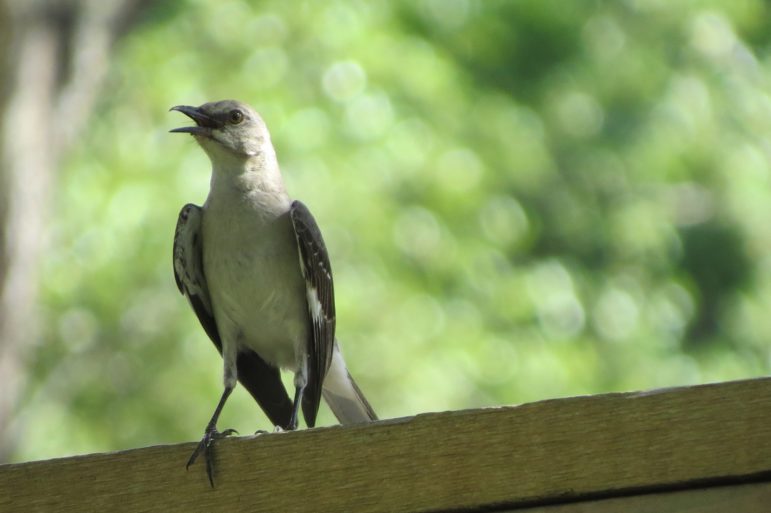NEW YORK – This week brought a bit of good news for Pagans who have a love for our winged friends, or have some variety of bird as a spiritual ally or feel a kinship with birds. An attempt to erode the protection of the Migratory Bird Treaty Act was over-ruled in a U.S district court.
The Migratory Bird Treaty Act (MBTA) was established as law in 1918 CE and is an important piece of legislation that has likely saved many birds from extinction. The MBTA with support from the National Audubon Society and other conservationist groups was enacted largely to prevent the killing of birds for sport and the use of their feathers for fashion, like the snowy egret, and preserve the species.
“The MBTA provides that it is unlawful to pursue, hunt, take, capture, kill, possess, sell, purchase, barter, import, export, or transport any migratory bird, or any part, nest, or egg or any such bird, unless authorized under a permit issued by the Secretary of the Interior. Some regulatory exceptions apply. Take is defined in regulations as: ‘pursue, hunt, shoot, wound, kill, trap, capture, or collect, or attempt to pursue, hunt, shoot, wound, kill, trap, capture, or collect.’ ”

Eagle – Image credit: Pixabay
Overall, it has been one of the most successful conservation and preservation acts ever passed. Bird populations that were endangered or even close to extinction began to rebound and now have large and healthy numbers. In 1972, raptors and other birds, including the bald eagle, were added to the list of protected species. In the early 1960s, fewer than 500 nesting pairs of bald eagles existed, despite already being protected by the Bald and Golden Eagle Protection Act of 1940. Today the estimates of nesting pairs of bald eagles are somewhere between 14,000 and 15,000 in the lower 48 of the U.S.
In December 2017, the Trump administration sought to challenge the legal opinion of the Obama administration which had stated that the language of the MBTA of “taking” and “killing” of birds applied to businesses even if the damage or deaths of the birds was accidental and incidental.
The National Audubon Society along with several other environmental and conservation groups filed suit in April of 2018 against the United States Department of the Interior in the Southern District of New York U.S. court. Eight states, New York, California, Illinois, Maryland, Massachusetts, New Jersey, New Mexico, and Oregon also filed lawsuits against the United States Department of the Interior.
Many of the organizations dedicated to protecting the environment pointed out that when past environmental catastrophes by industrial companies occurred, they would have escaped many of the penalties for the damage their epic failures caused to wildlife. The Deepwater Horizon disaster alone is estimated to have killed over a million birds.
On Tuesday, August 12, U.S. District Judge Valerie Caproni who presided over the federal lawsuit issued her 31-page decision in the case. The opening paragraph of the decision leaves no doubt as to her opinion:
“It is not only a sin to kill a mockingbird, it is also a crime. That has been the letter of the law for the past century. But if the Department of the Interior has its way, many mockingbirds and other migratory birds that delight people and support ecosystems throughout the country will be killed without legal consequence.”

Mocking Bird – Image credit: Pixabay
Judge Caproni continued:
“In December 2017 the Principal Deputy Solicitor of the U.S. Department of the Interior (“DOI”) issued a memorandum renouncing almost fifty years of his agency’s interpretation of “takings” and “killings” under the Migratory Bird Treaty Act of 1918 (“MBTA”). According to the DOI today, the MBTA does not prohibit incidental takes or kills because the statute applies only to activities specifically aimed at birds.
Environmental interest groups and various States brought three now-consolidated actions to vacate the memorandum and subsequent guidance issued in reliance on the memorandum. They have moved for summary judgment, and Defendants (or, collectively, “Interior”) have cross-moved. This case turns on whether DOI’s interpretation of the MBTA must be set aside as contrary to law under the Administrative Procedure Act 5 U.S.C. § 701 et seq., or upheld as a valid exercise of agency authority. For the following reasons, Plaintiffs’ motions are GRANTED, and Interior’s motion is DENIED.”
The decision is seen as a huge win by environmentalists, conservationists, and even those who merely saw the memo issued by the Department of the Interior as yet another example of the current administration’s overreach.
In response to the ruling, Interim Chief Conservation Officer for the National Audubon Society, Sarah Greenberger said, “Like the clear crisp notes of the Wood Thrush, today’s court decision cuts through all the noise and confusion to unequivocally uphold the most effective bird conservation law on the books–the Migratory Bird Treaty Act.”
Greenberger continued, “This is a huge victory for birds and it comes at a critical time – science tells us that we’ve lost 3 billion birds in less than a human lifetime and that two-thirds of North American birds are at risk of extinction due to climate change.”
She also indicated that the National Audubon Society is ready to take on further actions that might result in attempts to diminish the MBTA, “With today’s court decision, the administration should abandon the regulatory process it started to make this illegal bird-killing policy permanent.
“With the legal basis for its actions over the past year defeated the administration should expect more defeats in court if they try to lock-in their attempt to roll back the MBTA.”
The Wild Hunt is not responsible for links to external content.
To join a conversation on this post:
Visit our The Wild Hunt subreddit! Point your favorite browser to https://www.reddit.com/r/The_Wild_Hunt_News/, then click “JOIN”. Make sure to click the bell, too, to be notified of new articles posted to our subreddit.